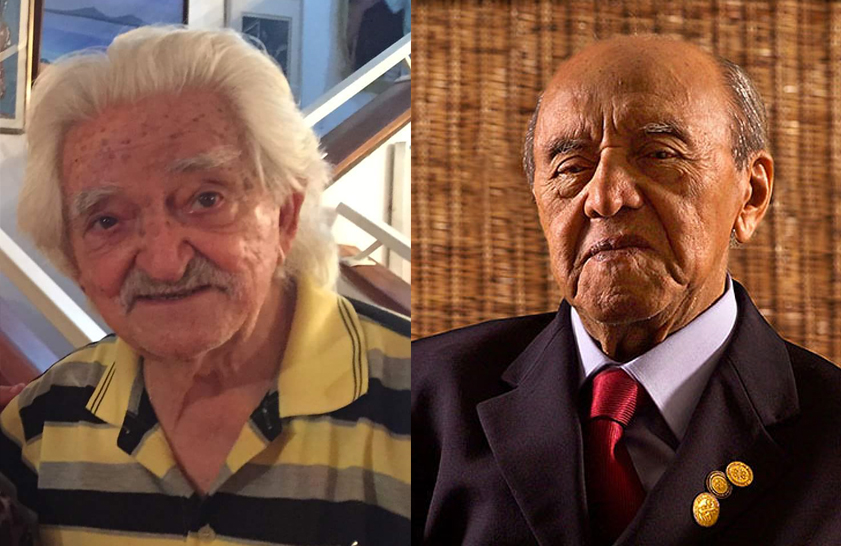JULY 2017: Venezuela Loses Two of its Leading Classical Musicians in Inocente Carreño and Alirio Díaz
JULY 2017: Venezuela Loses Two of its Leading Classical Musicians in Inocente Carreño and Alirio Díaz
By RAY PICOT
Inocente Carreño and Alirio Díaz both contributed significantly to the wonderful panoply of music that emerged from Venezuela in the second half of the 20th Century, with a timeless legacy that remains with us today.
Inocente Carreño was born in 1919 and studied trumpet, horn, clarinet and piano. His musical identity was strongly influenced through his studies with Vicente Sojo (known as the father of Venezuelan nationalism) from whom he developed a strong interest in his country’s folkloric tradions, which he successfully combined in a warmly expressive romantic style. His music written from 1946 onwards achieved wide recognition, particularly in his own country. Drawing on his love for the beautiful island of his native Margarita, he wrote in 1954 the work which has become his touchstone, the delicious orchestral piece Margariteña. Many more orchestral pieces followed including choral music - Carreño was also a choirmaster of great repute. He also played the french horn in the Venezuelan Symphony Orchestra and became Professor of Music Theory at the Jose Angel Lamas School of Music in Caracas. His music style developed in a subtle manner with few actual folk quotations in his mature work, much of it inspired by his beloved Margarita, the essence of which was perhaps distilled most successfully in his piano and choral music. I asked the Argentine pianist Valentín Surif who is presently in London, for a tribute, to which he responded: 'It is always sad to see great personalities like Inocente Carreño pass away. Of course his music is well known and his legacy will remain for ever as an example of the courage and perseverance of our great men to offer their dedication to traditional values of their own culture. They are the creators of the essence of a mixed European and American new expression, like George Gershwin in the USA and Alberto Williams in Argentina among so many others'.
The guitarist Morgan Szymanski, whom you may know from his ILAMS performances, has played for Alirio Díaz, and from his thoughtful reflection, clearly holds this musician and teacher in the highest regard, paying this eloquent tribute to him: ´Words can not justify the importance and magnitude of the wonderful legacy that Alirio Díaz has left for the world to delight in. Comparable in scale only to the legacy of his teacher Andrés Segovia, guitarists and audiences alike will benefit from his tireless work with composers, his multitude of arrangements and numerous recordings. Venezuela has lost a legend’. Alirio Díaz was born in 1923 in La Candelaria where music was a way of life, developing a natural talent for the cuatro, mandolin and guitar. After great encouragement, in 1942 he had more formal music studies with Laudelino Mejis, and from then on with the great Raúl Borges, which also led to lessons with Augustín Barrios. His public debut in 1950 was followed by studies in Spain with Regino Saiz de la Maza, and more importantly through the summer courses of Andrés Segovia from 1951 to 1963 he developed his own unique voice. He toured extensively and Díaz received many honours in his lifetime and taught new generations through his generosity of spirit. He published many arrangements of traditional Venezuelan folkloric music which are still used today. Alirio Díaz also left a magnificent legacy of recordings, particularly for his solo instrument. His premiere reading of the 1st Guitar Concerto of his compatriot Antonio Lauro, was reviewed in our June newsletter.
Site design and content copyright © 1998-2023
The Iberian and Latin American Music Society, all rights reserved.
ILAMS is a registered charity, No. 1092749